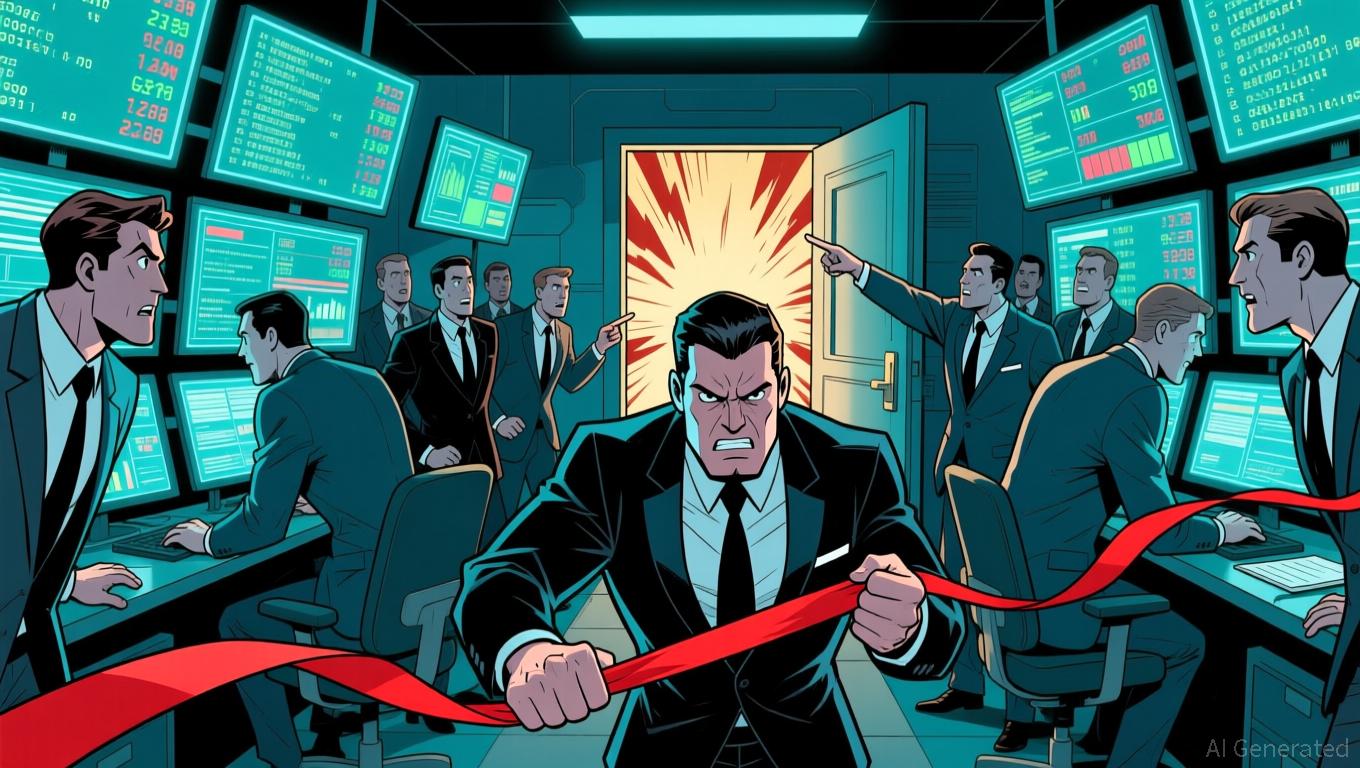U.S. Senate Unveils Draft Crypto Market Structure Bill Aiming to Redefine Bitcoin Regulation
After months of waiting, the U.S. Senate committee has issued the draft of the long-awaited crypto market structure bill. If passed, this measure could be the most consequential change in the treatment of regulated digital assets such as Bitcoin, Ethereum, and stablecoins in the U.S. marketplace. The draft proposes to clarify the regulatory gray area that has burdened investors and institutions for many years now.
The U.S. crypto market structure bill seeks to define which agencies oversee specific segments of the crypto ecosystem. For years, the lack of clear distinctions between securities and commodities in digital assets has caused confusion, limiting innovation while discouraging institutional participation. Lawmakers now seem determined to change that narrative.
With the bill expected to pass by year-end, industry participants see this as a turning point. This turning point could finally align American crypto policy with modern financial standards. The move signals Washington’s growing recognition that digital assets are here to stay and need a structured framework that supports innovation while protecting consumers.
🚨HUGE: 🇺🇸Senate commitee has finally released the long-awaited DRAFT of the crypto market structure bill.
— Coin Bureau (@coinbureau) November 11, 2025
The bill, set to overhaul how #Bitcoin & crypto are regulated, is expected to PASS by year-end. pic.twitter.com/scVzfq4Rld
Why the Crypto Market Structure Bill Matters Now
The timing of the crypto market structure bill is crucial. Global powers, from the European Union to Japan, have already established clear crypto frameworks. The U.S., however, has struggled with fragmented oversight split between the SEC and CFTC. This bill aims to end the turf war by setting transparent boundaries.
Under the proposed structure, cryptocurrencies that operate on decentralized networks could be regulated by the Commodity Futures Trading Commission (CFTC), while tokens tied to specific entities or projects may fall under SEC jurisdiction. This division is designed to provide much-needed clarity for businesses developing on blockchain networks.
This legislation could definitively establish Bitcoin as a digital commodity, rather than a security, providing it with a clearer legal footing. It would be a welcome change for individuals who have recently invested or have been long-time miners and have called for formal recognition under a commodity law.
Breaking Down the Key Provisions in the Draft Bill
The legislation presents a tiered regulatory approach, with the intention of describing digital assets according to decentralization, function, and overall market behavior. The legislation identifies three primary policy objectives: protection of investors, integrity of the market, and facilitating innovation.
Moreover, it requires exchanges and brokers that deal in crypto assets. This is to register with appropriate regulatory authorities, implement anti-fraud frameworks. And also to comply with the standard of disclosure relative to traditional markets. While the framework balances admonition and innovation, it could help create more comfort for institutional investors, a major driver for future market expansion.
With regard to stablecoins, it discusses oversight under federal agencies. This would address the risk of stablecoins failing to maintain appropriate reserves and disclosure. Unlike traditional payment systems, the goal is to avoid risk to the financial system while allowing digital payment networks the maximum amount of flexibility.
Conclusion
Should it come into effect, the United States crypto market structure bill could trigger a new era of digital finance – one that is based on transparency, security, and innovation. For investors, it represents an acknowledgement that the world’s largest economy is belatedly embracing crypto within a legal framework, rather than attempting to fight it from the sidelines.
The governments around the world, this legislative landmark could change how they think about Bitcoin legislation, establishing its unique brand of responsible yet progressive regulation. For an industry long stuck in the quagmire of uncertainty, this draft has introduced something different, hope grounded in structure.
Disclaimer: The content of this article solely reflects the author's opinion and does not represent the platform in any capacity. This article is not intended to serve as a reference for making investment decisions.
You may also like
Ethereum Updates Today: DeFi's Quest for Stability: Is It Buterin's Dream or a Traditional Finance Trap?
- Ethereum co-founder Vitalik Buterin declares DeFi "finally viable" as a savings tool, citing improved security and maturity since 2019-2020. - He advocates "low-risk DeFi" as Ethereum's foundation, comparing it to Google Search's role in Alphabet's dominance. - Institutional confidence grows with ARK Invest's ETH exposure and whale accumulations, while TVL declines and legal uncertainties persist. - Critics warn stability-focused DeFi risks becoming a "TradFi Trojan horse," stifling innovation despite bu

Bitcoin News Today: Bitcoin Faces $108K Test: Surge Ahead or Setback?
- Bitcoin hovers near $104.5K with technical indicators signaling potential breakout above $108K, driven by ETF inflows and reduced miner selling pressure. - AlphaPepe (ALPE) attracts 3,500+ holders via BNB Chain presale, offering staking rewards and 10% referral incentives amid SHIB holders' search for high-potential meme tokens. - Shiba Inu expands utility through telecom node partnerships, enabling SHIB-based payments and rewards, aiming to solidify real-world adoption beyond speculative trading. - Cana

Boring Co.'s Hazardous Tunnels Face Off Against OSHA's Weak Oversight
- The Boring Co. was fined $500K for illegally dumping toxic drilling fluids in Las Vegas, damaging infrastructure and raising health risks. - Nevada OSHA faced scrutiny over withdrawn citations due to procedural errors and missing records, sparking transparency concerns. - The Governor’s Office denied political interference but deleted a meeting record, deepening skepticism about regulatory independence. - Repeated environmental and safety violations highlight ongoing regulatory challenges for the Boring
Boring Co. Penalties Highlight the Challenge of Balancing Safety with Innovation
- The Boring Company faces a $493,297 fine for illegally dumping toxic drilling fluids into Las Vegas manholes, marking the largest penalty in Nevada's CCWRD history. - Nevada OSHA withdrew 2023 safety citations after legal review, citing unmet requirements for valid violations, raising concerns about regulatory enforcement consistency. - Critics highlight political pressure risks and legal loopholes, including Anti-SLAPP law tactics, that could hinder future accountability for high-profile tech ventures.
